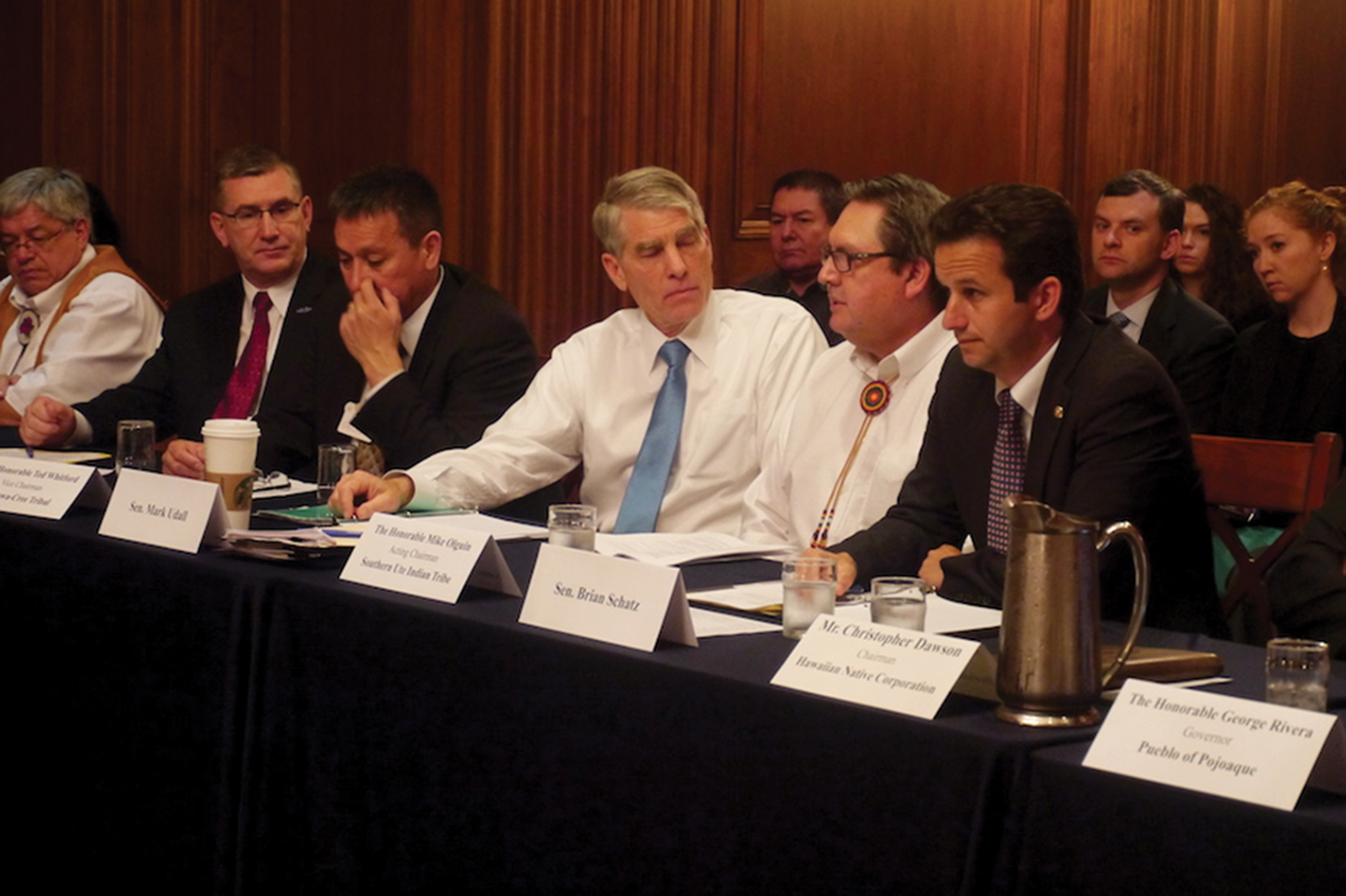Acting Chairman, James M. Olguin, took the long trip to our nation’s capital on Thursday, April 29, 2014. As the Chairman many duties need to be followed through, outside of Tribal Council meetings. Lobbying in Washington, D.C., on legislative issues that affect the on a local level is one of those duties.
Bills and laws that are passed in Congress affect the way tribes across the country progress. It is important that elected leaders from our state hear our concerns and potential solutions.
On April 30, Olguin and Senator Mark Udall participated in a tribal leaders’ forum of the Democratic Steering and Outreach Committee (DSOC). This meeting was attended by numerous Democratic Senators, among those in attendance included, Senators Begich D-Alaska, Tester D-Mont., Mark and Tom Udall D-Colo., D-NM.
According to their website, the Senate Democratic Steering and Outreach Committee is dedicated to fostering dialogue between Senate Democrats and leaders from across the nation. DSOC hosts numerous meetings to discuss key priorities and enlist their help in the development of the Senate Democratic agenda.
The Committee serves as a liaison between Senate Democratic Leadership Committees in the Senate and is chaired by Senator Mark Begich and vice chaired by Senator Jeanne Shaheen D-N.H.
The discussion focused on building tribal communities and economic development in Indian Country. Participants pinpointed ways the federal government can give tribes the tools they need, or simply put, get out of the tribes’ way and let them determine their own future to ensure that economic opportunities are plentiful for the future.
Olguin gave a brief history of the mineral development on the reservation dating back from the 1970’s.
“The Southern Ute Indian Tribe is a leader of Indian country, not because of our reliance on the federal government but because of our own hard work,” Olguin said.
Olguin went on to brief the near-capacity-filled room of the work the Southern Ute Tribe has put into its success by stating that it is the largest employer in La Plata County and the sizeable amount of oil and gas holdings across the United States and the Gulf of Mexico; reminding them none of these feats were the result of guidance obtained by the federal government.
“All too often, the federal government has been a barrier to our efforts. The BIA approval for routine transactions is too slow, causing significant delays, which have severely impacted our bottom line,” Olguin stated.
Olguin touched on the wait time the Tribe has had to endure while relying on the BIA.
In 2009 a review of projects pending revealed over 100 energy related permits and rights-of-way waiting approval from the BIA, over half of those had been waiting for more than a year. According to Olguin, this wait time has had a significant economic impact on the Tribe itself and simply is not acceptable.
In his closing statement Olguin was optimistic about how the federal government should help the Southern Ute Indian Tribe.

